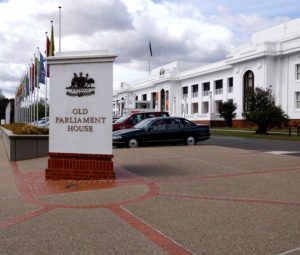UK Proposes New Telecoms Security Bill; India Bans Another 43 China-Based Apps
by Grace Dillon on 25th Nov 2020 in News

In today's ExchangeWire news digest: the UK government proposes a bill to officially ban Huawei and sanction non-compliant telcos; the Indian government bans a further 43 apps made by Chinese developers from its cyberspace; and Australia reviews its 1988 Privacy Act as it updates its cybersecurity regulations.
UK telecoms security bill cracks down on network privacy
A new piece of legislation which bans Chinese telecoms giant Huawei from working on the UK’s 5G mobile network has been announced. The Telecommunications Security Bill, which was revealed yesterday (24th November), is the first tangible attempt by the government to legally bar Huawei from the nations’ telco landscape.
If passed, the bill will grant the government authority over national security, which will include the power to instruct the leading telecoms firms, such as BT, on how to engage with “high risk” companies, such as Huawei. The proposed law also seeks to tighten security by imposing more stringent fines against companies who fall short of security standards, including those related to allegedly risky vendors.
The communications regulator, Ofcom, will be responsible for enforcing the new rules, and fines for non-compliance could reportedly total over £100,000 a day. Huawei, which appeared to think that the defeat of Donald Trump (whose administration kick-started the UK government’s intensified scrutiny against the firm) would see the UK abandon the ban, has stepped up its efforts to convince the government to change its mind. The telco colossus released a report indicating the financial drawbacks of banning its hardware from the UK’s network, and has launched an ad campaign appealing for it to be reinstated.
India bans a further 43 Chinese apps
 India’s Ministry of Electronics and Information Technology has banned a further 43 China-based apps from the country’s cyberspace. The latest cull brings the total number of applications from neighbouring China to be barred in the country to 218.
India’s Ministry of Electronics and Information Technology has banned a further 43 China-based apps from the country’s cyberspace. The latest cull brings the total number of applications from neighbouring China to be barred in the country to 218.
As with the previous bans, Indian authorities gave concerns surrounding the security of the nation’s cyberspace as the reason for blocking the apps. A statement from the Ministry read that the move “was taken based on the inputs regarding these apps for engaging in activities which are prejudicial to sovereignty and integrity of India, defence of India, security of state and public order”.
Amongst the 43 newly-banned apps are Snack Video, AliExpress, Lalamove, and Taobao Live. It is now reported that India’s top 500 does not contain a single China-based app.
The move follows festering tension between the Asian powerhouses, which was sparked after a clash between Chinese and Indian forces in the Himalayas in June. Since then, India has become increasingly unreceptive to its neighbour, with heightened governmental scrutiny and growing disdain from India’s citizens. Despite this, some of the apps previously banned under Narendra Modhi’s premiership are seeking to return to the country, including TikTok and PUBG Mobile, which have both declared India their largest overseas market.
Australia reviews its privacy laws
 Australia’s privacy legislation will face a review following an investigation by the country’s Competition and Consumer Commission (ACCC). The Digital Platforms Inquiry, which was carried out in September this year, was met with a number of recommendations to enhance privacy safeguards from the Australian government. Now, the administration is building on its response with a review of the 1988 Privacy Act, which will be spearheaded by the Attorney General’s office.
Australia’s privacy legislation will face a review following an investigation by the country’s Competition and Consumer Commission (ACCC). The Digital Platforms Inquiry, which was carried out in September this year, was met with a number of recommendations to enhance privacy safeguards from the Australian government. Now, the administration is building on its response with a review of the 1988 Privacy Act, which will be spearheaded by the Attorney General’s office.
The latest inquiry will review the current efficacy of the Act by considering its scope, application, and whether it provides a suitable and proportionate framework that enshrines best privacy practices. Those managing the review will also contemplate potential updates to the Act, which could include financial compensation for serious privacy infringements, a data breach notification system, and an independent privacy law adherence certification initiative.
Commenting on the review, Attorney General Christian Porter stated that the country needs privacy regulation that will effectively protect Australian’s data as they spend more time on an increasingly technological network. “Technology is […] rapidly evolving in areas such as artificial intelligence and data analytics, which is why it is crucial that we have a privacy regime that is fit for purpose, can grow trust, empower consumers and support the growing digital economy,” he said.
AppsAustraliaChinaIndiaMobileUK








Follow ExchangeWire